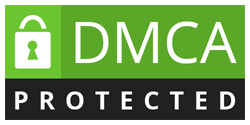EFFECTIVE LEARNING METHODS: THIS IS HOW EXAM PREPARATION WORKS
EFFECTIVE LEARNING METHODS: THIS IS HOW EXAM PREPARATION WORKS
 If the exam phase is just around the corner and in just 3 weeks, the material for the entire semester should be squeezed into your memory. How is that even possible. This article provides you with some effective learning methods and ultimate approaches for exam preparation.
If the exam phase is just around the corner and in just 3 weeks, the material for the entire semester should be squeezed into your memory. How is that even possible. This article provides you with some effective learning methods and ultimate approaches for exam preparation.
An overview of different approaches
Before you start learning, you should be aware of which learning methods are ideal for you. This doesn’t just mean specific, effective learning methods, but also how you actually work best yourself in general. Are you making good progress alone or does it work better in a team? Do you perceive lectures as simply preparing for exams, or is that, in your opinion, a waste of time? If you’re not sure how to best learn, you can take a look at the different types of learners.
It all depends on the right structure
If you now have a rough idea of what type of learner you belong to, then you can start organizing. Before you sit down and diligently write index cards, you should create a rough study plan. This is particularly important if you a) already have little time due to many lectures, part-time jobs and other commitments. Maybe, even outside of the exam phase you keep forgetting what is actually on your to-do list and what you have to do in the university during the week. Remember, if you have so many undone essays preventing you to prepare adequately, you can ask for online essay writing help from Brainy Term Papers
Becoming aware of goals
Before you are highly motivated to write summaries, you should be aware of what you actually need to be able to do. What does your lecturer expect from you? Does he / she want you to memorize every little detail of the script and then ruminate everything on the exam? Or do you have a good professor and it is important to understand connections and to grasp the central issues? Depending on what is required of you, you should adapt your learning strategy and find an effective learning method. If you are not sure what your professor actually wants from you, a visit to the lecture or a looking at old exams will usually help.
Set achievable goals
The claim to want to learn everything is of course great. However, it is often just not possible to memorize all of the material in a course. Not every detail is necessarily relevant for the exam, and if you have three or four other exams ahead of you, it is better to set realistic goals right from the start.
Form study groups
Do you count yourself among auditory or communicative learners? Then learning groups are just the thing for you. You actively learn through lively discussions and regular meetings and you have to switch your head on! Who does not know this: You apparently read a text and after two pages you notice that you have actually not registered anything. If you learn together with others, this cannot happen to you, because you have to go through the material in your own words.
In addition, in discussions with others, you notice false conclusions that you would never have questioned yourself. Study groups can also help with small-step deadlines (on Monday we discuss Chapter 2 and on Friday Chapter 4, etc.). Another great benefit is that it stimulates episodic memory . While one “only” acquires knowledge when working alone at a desk ( i.e. using semantic memory ), interactions with others are much more memorable – with which you then link your factual knowledge. Here you have to find an effective learning method for yourself.
Make use of your individual performance curve
Do you get up at 6 a.m. to start studying early or do you prefer to sleep in and sit at your desk until midnight? Before you can create a meaningful study plan, you should become aware of your strengths. Just because your fellow student always gets up at 5:30 a.m. and starts studying immediately doesn’t mean you should do the same. Maybe you’re a night owl – so what? Then you just do unimportant little things in the morning and only sit down at your desk in the afternoon when you can concentrate better. Find the right time management
If you have become clear about your strengths and know which effective learning method is right for you, then time management can also be a problem. It is important here: do not plan too much! Do you have a part-time job? Ask your boss if you could work less during the exam phase. Is there a super interesting block seminar at the end of the semester? Think carefully about whether this is really a good idea a week before your exams.
Also, learn to say no; and not for learning, but for other “obligations”. Sure, you want to make the most of your student days – but you should reconsider whether a three-day festival during the examination phase is a good idea.
Besides, try not to organize too much. A rough schedule can help you stay on top of things, but planning every hour of the day four weeks in advance is less helpful. On the one hand, you probably can’t keep it at all and, on the other hand, you have wasted valuable learning time to “plan” everything.
Conclusion
Exam preparation can really be a challenge to anyone. Everyone needs to find their place when it comes to exams phase. If you have no idea how to prepare, it is likely that you will panic and fall in stress. However, the above techniques may be helpful in making your exam phase more bearable. Besides, our experts are ready to offer you support in this phase by relieving you the burden of your essay and other writing assignments. Ask for help now.




